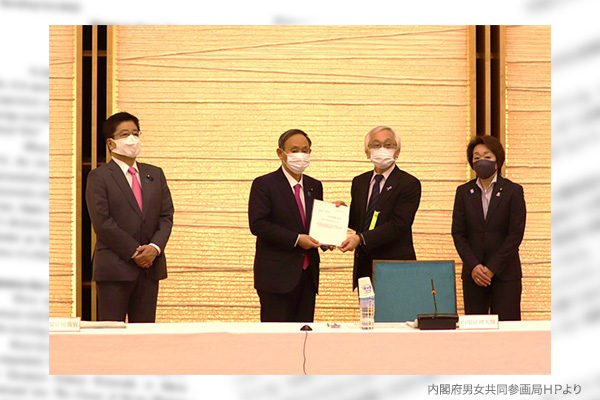A focus of discussions regarding Japan’s fifth Basic Plan for Gender Equality decided on by the cabinet on December 25 has been a system allowing married couples to use different surnames. The Plan eventually calls for further considerations of the specific systems regarding surname for married couples in keeping with the history of the same-surname system integrated with the family registration system; in full consideration of family togetherness and effects on and best interests for children; in keeping an observant eye on various national opinions and discussions at the National Diet; and in accord with judicial decisions.
Problem of losing parent surname
Discussions on the dual-surname system are not only about changing surnames on marriage but also about the modality of families. Even if the dual-surname system is dominant in the international community, whether the system is suitable for Japan must be prudently considered. As indicated by the trend that children born outside of marriage are relatively few in Japan, Japanese families differ characteristically from those in foreign countries.
In discussions on the dual-surname system, it has been pointed out that some people give up on getting married out of concern that their parent surnames would be lost, contributing to a decline in birthrates. The dual-surname system, if introduced, would allow a person hoping for dual-surnames and his or her partner who can accept dual-surnames to overcome the obstacle to their marriage. But a person hoping for dual-surnames and his or her partner who cannot accept dual-surnames may face a new obstacle to their marriage.
For persons who hope for dual-surnames out of concern that their parent surnames would be lost, what to do with surnames for their children may become an important issue. It may be desirable to allow children to solve their surname problems on their own after growing mature, instead of being given their surnames by their parents when they are born.
Special characteristics of today’s Japanese families
A popular theory says that Japanese family system has changed from patriarchy to nuclear family since the end of World War II. However, studies by family sociologists found that while couples’ rate of living together with their parents just after marriage has declined, the rate of doing so years after marriage has increased, allowing the final such rate to remain almost unchanged. These studies thus indicate that the so-called stem-family system has remained in Japan and that couple’s living together with their parents has had close relationship with the succession of surnames. At the same time, they also suggest that traditional childrearing support from wives’ parents has remarkably increased due to a fall in the average number of children per couple and the decline in the rate for couples to live together with their parents right after marriage.
Thus present-day Japanese families apparently maintain a balance by placing emphasis on husbands’ parents through succession of surnames and on wives’ parents through childrearing and other supports. How the dual-surname system would affect such balance should be considered when the system is discussed.
Takeshi Kudo is an adjunct lecturer at the Faculty of Literature and Science, Nihon University, and a member of the Planning Committee, Japan Institute for National Fundamentals.


